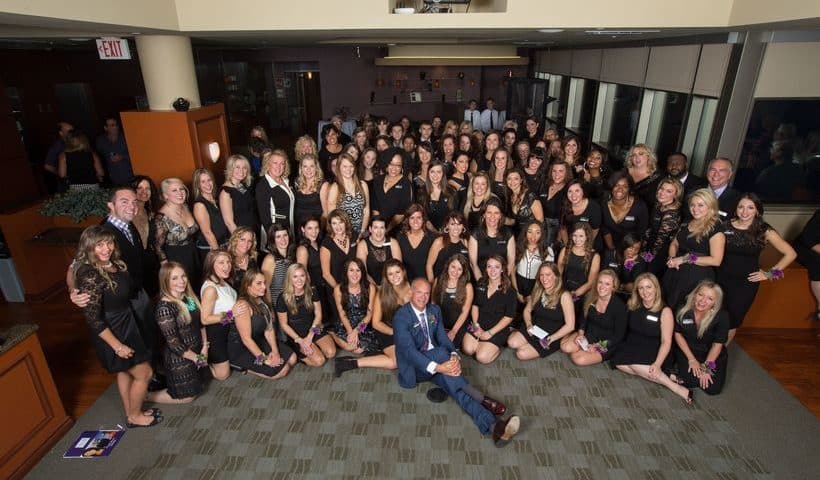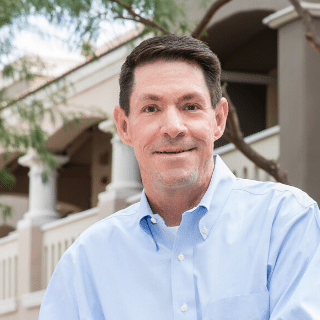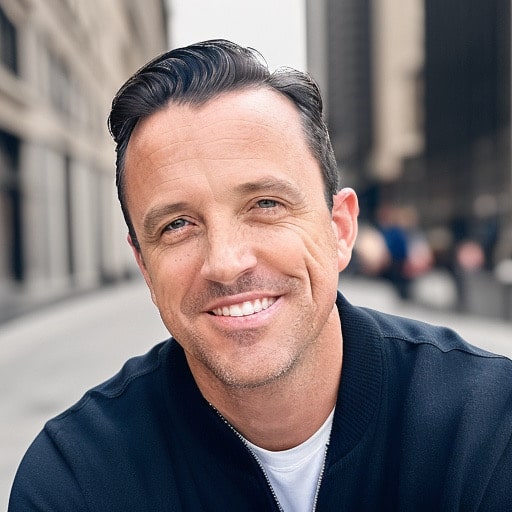Blitzscaling; Billionaire Reid Hoffman; Million Dollar Women; London Jan 16 – 18
October 4, 2018Meeting Rhythm Examples; Best DNA Test; Biggest Sales Mistake; Blitzscaling’s 5 Lessons
October 12, 2018
How one medical spa chain saved $300,000 a month
As the founder of Allure Medical Spa discovered, employees can be powerful allies in keeping costs down—especially if they share in a company’s profits. After Allure fixed its cash-flow challenges and retargeted its marketing, the company is now opening one location per quarter.
By Verne Harnish
When Charles Mok, DO, opened Allure Medical Spa in Detroit it was a side business where he did cosmetic work such as Botox and laser vein treatments. At that time in 2004, his main job was working in the emergency and trauma center at a hospital. “I had no business experience,” recalls Dr. Mok.
Nonetheless, Allure took off quickly, and two years after founding it, Dr. Mok left his job at the hospital to run it full time. By 2013, it had about 85 employees and $12 million in revenue. Dr. Mok set a goal of doubling the size of the business in three to five years.
He beat that goal and today, Allure is on track for $30 million in revenue. The company made the Inc. 5000 list of the fastest-growing private companies in America for 2017 and currently has five locations in the Detroit metro area and a new one in Beverly Hills, with 171 employees and seven physicians.
Building a strong foundation for growth
How did he pull it off? Allure put the right systems in place for growth.
Although Dr. Mok was off to a strong start in growing Allure, he knew there was more to learn—and like many successful leaders, is a reader. He’d soon read Mastering the Rockefeller Habits, my first book on how to achieve a successful scaleup, and started drawing on ideas from the book. For instance, he put together a strong leadership team and began delegating more. The company also began holding daily huddles to build better communication.
Dr. Mok continued to grow revenue, but there was a problem. Allure’s expenses were climbing even faster.
“I knew how to increase business but lacked an understanding of how to scale profitably,” he says. By 2015, Dr. Mok hired a financial staff and in 2016, Dr. Mok he added a CFO. The CFO worked out better payment terms with vendors to improve cash flow, but Dr. Mok ultimately wanted to do more.
After reading my book Scaling Up: Rockefeller Habits 2.0, Dr. Mok attended what is now called the ScaleUp Summit in 2015 to learn more about how to deploy the Scaling Up system for growing a company. In 2016, he began working with Gazelles International Certified Coach Mike Goldman. He and his leadership team developed the company’s core values, purpose and vision. Every Friday, Dr. Mok would make a video to share with the entire team to outline the principles the company embraces.
Greater accountability
Dr. Mok prefers a somewhat unstructured organization, without a lot of bureaucracy, but he still wanted to establish greater accountability for his team and provide mentoring and feedback to help them grow. Goldman helped him build a culture where employees with just a few years of experience were well trained and empowered to make key decisions without asking their boss for direction.
“It’s about having employees take ownership,” says Goldman.
Putting cash front and center
Getting the cash part of the equation right was essential. Dr. Mok had openly shared the company’s financial status with his team from the beginning, but after reading The Great Game of Business by Jack Stack, he began asking his employees to get more involved in making sure the spas are profitable. He dissolved all previous bonus plans and moved to a monthly profit sharing plan in which all employees participate.
The profit sharing plan proved to be highly motivating, and team members offered many helpful suggestions on how to avoid wasting money, particularly on supplies.
They also looked at how to streamline their work. “They started identifying things they could do more efficiently, with fewer people or in fewer hours,” he says.
The change was dramatic, with the staff collectively figuring out how to save about $300,000 a month.
“It was almost like hitting a switch,” says Dr. Mok. The business went from break-even or losing a little money every month to turning a healthy profit.
More focused marketing
Allure also got clearer on its core customer and focused its marketing more closely on them. By studying its patient database—which includes 140,000 people—Allure’s team realized that eight Census block groups accounted for 70% of its revenue—and directed more of the company’s marketing efforts toward them. These were not necessarily the most affluent Census blocks in the area, but they were made up of people at a stage of life in which they could afford to take care of themselves. For instance, one key group of customers is older adults whose children have finished college.
Allure, which specializes in high-value services, also published its prices on its website as a way of screening out price shoppers. “By being brutally honest, we lowered our new patients by 30% but our business revenue grew by 50% in one year,” Dr. Mok says.
In early 2017, Dr. Mok attended the CEO Boot Camp my company runs. One of the most powerful takeaways, he said, was learning that companies that are true Gazelles—or high-growth firms—produce profits three to five times their industry average. “I thought this was impossible, but changed my mindset,” says Dr. Mok. “Now, seven months later we are running at 2.5X of our industry profit, and plan to hit 3X during this winter.”
With these changes in place to its cash flow and marketing strategies, Allure has the fuel to accelerate its growth plans, adding one new location per quarter in the Detroit metro area with plans to expand into Tennessee in 2018. It’s a powerful example of how to involve all of your employees and better target your messaging to scale up your business.




